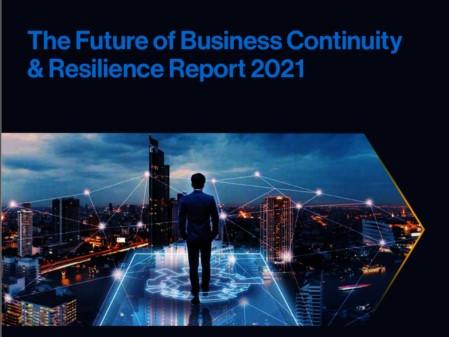
Brian Sims
Editor

Brian Sims
Editor
ACCORDING TO the new Business Continuity Institute (BCI) report entitled ‘The Future of Business Continuity and Resilience’, the role of the business continuity manager has now become more strategic than operational within today’s organisations.

While continuity of operations remains the core focus for professionals, senior management have been showcased the knowledge and expertise of business continuity teams throughout the pandemic and are now seen as the cornerstone of building a more resilient organisation post-pandemic.
It’s not only business continuity managers who’ve gained far more attention of late. Business continuity as a discipline in its own right is now perceived as a ‘must have’ for most organisations across all industry sectors. The BCI report finds that there has been a substantial increase in the appreciation of business continuity and business resilience within organisations, more so at the executive level than among members of staff.
In fact, this trend was also recently highlighted in an article published on Forbes. It states: “In the wake of the COVID-19 pandemic, organisations, including those in the financial services sector, are thinking long and hard about business continuity planning. The pandemic is raising awareness and prompting a considerable amount of investment. While encouraging, there’s much more to be done to prevent anticipated or unanticipated events from disrupting what used to be known as ‘business as usual’.”
Business continuity professionals who took part in the BCI’s research have reported that, during the pandemic, they’ve earned a ‘spotlight’. Top management now have a greater appreciation of the knowledge and skills that business continuity and resilience professionals can provide.
Strategic direction
Many business continuity professionals have reported that they’re now being asked for opinions on whether a new strategic direction for a given business would work solely from a business continuity perspective.
The BCI report also points out that part of this growing appreciation for business continuity “stems from the use of the word ‘resilience’”. It’s a term that appears to resonate better with senior management than does business continuity. On the other hand, the report also asserts that staff are more likely to be ‘very’ aware of the role of business continuity rather than resilience. This would seem to suggest that resilience is still primarily a concern of top management.
That said, the research also suggests that staff awareness is only part of the business continuity mix. There’ s still much work to be done in terms of educating employees in the subject of business continuity on the basis that it does play a crucial role in the overall resilience of organisations.
The issues encountered during COVID-19 have prompted organisations to think in advance of potential issues and tackle them far enough ahead in order to prevent problems from developing. As we enter the post-pandemic stage, organisations are facing a new wave of challenges and threats – from supply chain disruptions and new cyber threats through to fast-changing consumer behaviour and growing climate risks. This means that business continuity managers will need to keep the momentum going by becoming involved in strategic decisions, collaborating with other departments (ie risk management, cyber security and supply chain management, etc) and working to embed business continuity by training staff and educating staff.
*Read the BCI’s report entitled ‘The Future of Business Continuity and Resilience’
Dorset House
64 High Street
East Grinstead
RH19 3DE
UNITED KINGDOM
01342 31 4300